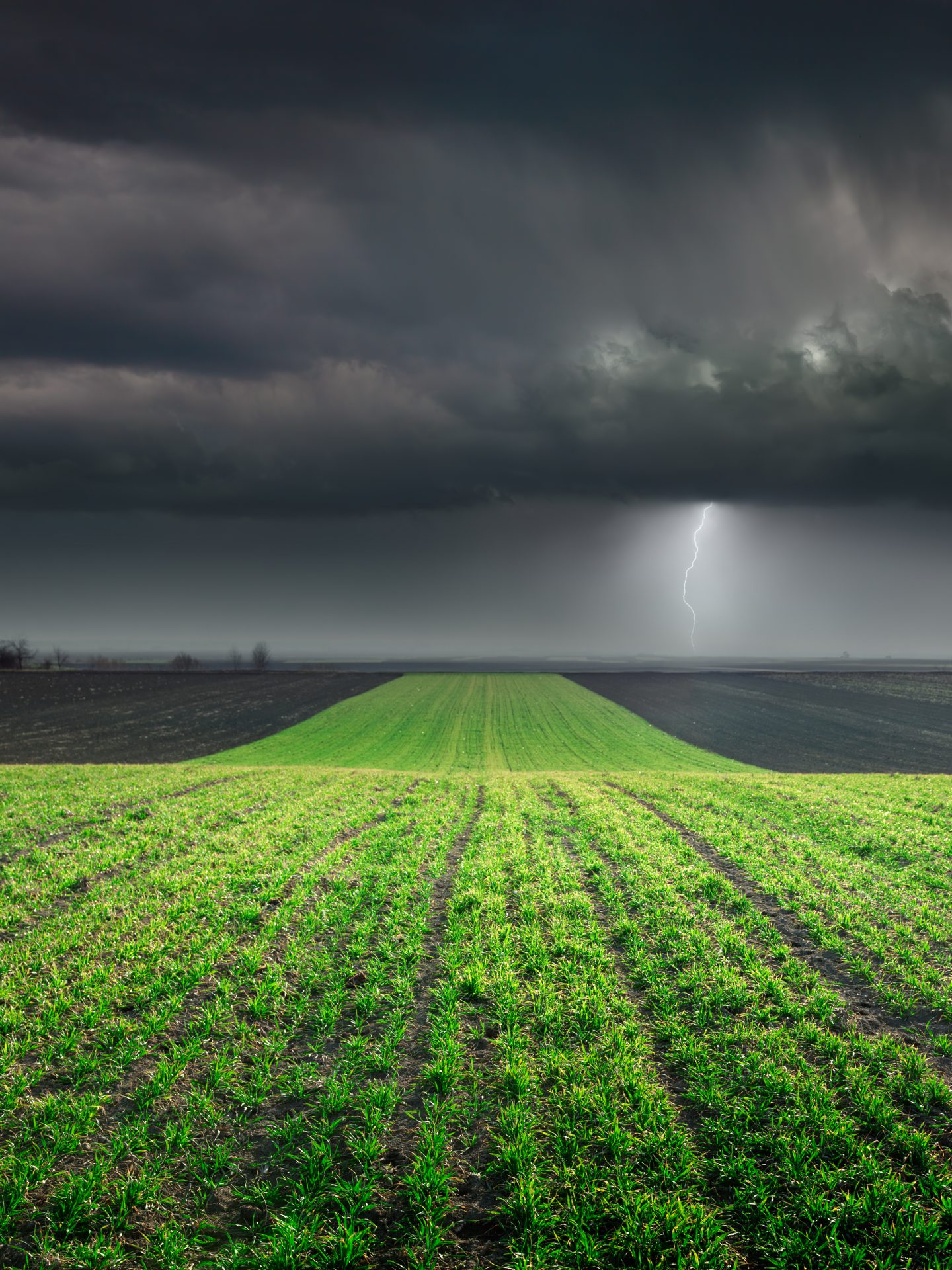The French government’s announcement on creating a fund to promote crop insurance was enthusiastically received by farmers’ associations.
Extreme weather conditions, such as late frosts and rains in the spring of 2021, are unfortunately set to become more and more common. Climate change has just begun; although efforts to tackle rising temperatures have become a top priority for many governments, it will take many years for the effects of policies to fully unfold. Droughts, floods, heatwaves and frosts will inevitably increase in frequency in the coming decades. For this reason, many governments are trying to take measures to reduce the impact of similar events on the most exposed category: farmers.
Crop insurance is relatively uncommon in Europe despite significant subsidies to insurance premiums, especially among small and medium farmers. Roughly 30% of French farmers are insured, and the same figure goes down to 15% in Italy. These are very low levels compared to the US, where around 80% of crops are covered by insurance.
Many factors can be cited to justify this difference, starting with the smaller size of European farms and the high heterogeneity of agricultural systems, which makes it difficult to formulate a common policy. Nonetheless, this difference could prove crucial in the coming years if institutions at the European and national levels cannot find innovative solutions. According to most reports on climate change, global warming will put much pressure on many traditional crops in Europe in the coming decades.
This is the main reason why President Macron announced the creation of a new crop insurance system in France, which will benefit from subsidies of € 600 million per year, according to the article published by our partner Euractiv. In France, an agricultural disaster scheme is already active and financed by the state. Still, the distribution of the funds, which take up to nine months to be allocated, is too delayed to ensure farms continuity. The new system will have to be faster and simpler to guarantee immediate assistance to farmers affected by natural disasters. The aim is to share risks between a wider pool of agricultural entrepreneurs and improve the timing and compensation methods.
In this sense, France could be an example that other European countries will soon follow. However, it is important to consider that no insurance mechanism can completely compensate for the lack of harvest. For this reason, it will be equally important to focus on technological innovation to improve the management of uncertainties associated with agricultural entrepreneurship. If developed and disseminated systematically, many technologies could significantly reduce the difficulties and risks associated with climate change. Furthermore, they could help minimise resources waste and the use of chemicals like fertilisers and pesticides.
AI, for instance, could provide farmers with real-time insights from their fields, allowing them to predict floods, frosts or heat waves in advance and identify areas that need irrigation, fertilisation, or pesticide treatment. Advanced farming practices like vertical agriculture may help increase food production while minimising the use of resources. Innovative breeding methods such as CRISPR-Cas9 could soon make available plant varieties that are more resistant to frost and heat and less dependent on pesticides and fertilisers to survive. Advanced organic agriculture techniques can contribute significantly to the sequestration of CO2 in the soil, particularly if they are used in combination with other innovative technologies.
Re-Imagine Europa’s Task Force on Sustainable Agriculture and Innovation has been working for over a year to set up a new vision for European agriculture in the twenty-first century while respecting the values and traditions that characterise it, making its products appreciated all over the world. Even if no silver bullet can solve all farmers’ problems, envisioning innovative solutions to ensure a bright and prosperous future for their business, whose contribution to Europeans’ health and well-being is impossible to deny, is particularly important.
The next meeting of the Task Force’s Expert Committee will focus on the international perspectives. It will be held on October 5th and will include a keynote speech from Professor Jennifer Doudna, who received the 2020 Nobel prize in Chemistry for developing the CRISPR-Cas9 method for genome editing.




